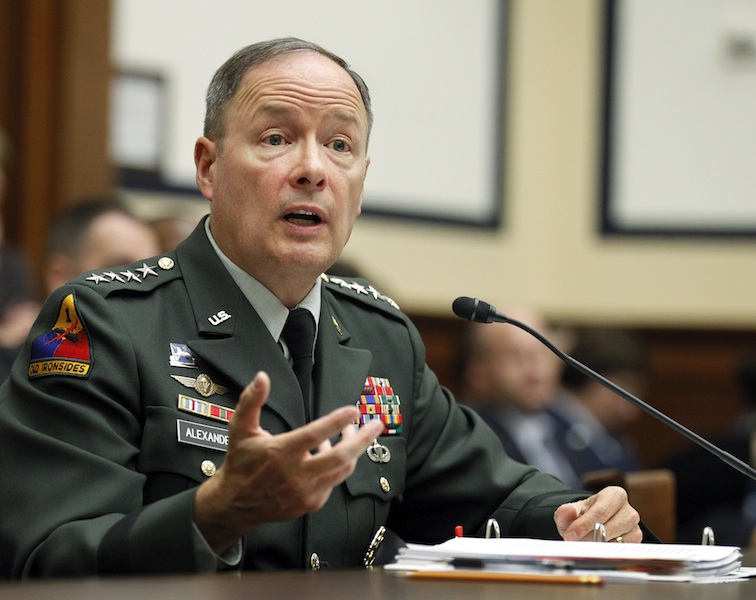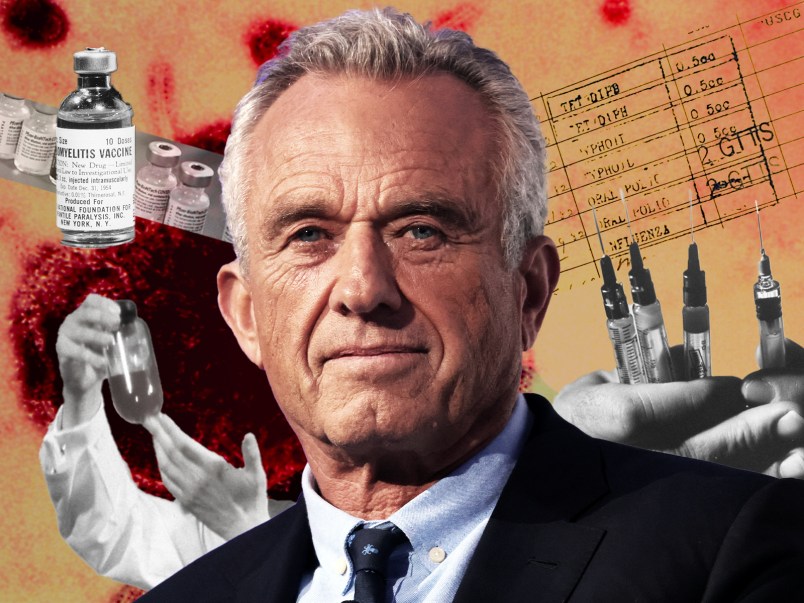Spencer Ackerman in Washington and Dominic Rushe in New York | The Guardian
Keith Alexander defends agency’s broad surveillance as being in line with Americans’ expectations for preventing another 9/11
National Security Agency director Keith Alexander said on Sunday that whistleblower Edward Snowden betrayed the trust of Americans and defended the broad surveillance programs as necessary to prevent another terrorist attack.
As Snowden evaded an attempt on Sunday by Washington to have him arrested in Hong Kong, General Alexander told ABC’s This Week: “This is an individual who is not acting, in my opinion, with noble intent … What Snowden has revealed has caused irreversible and significant damage to our country and to our allies.”
Alexander said the NSA surveillance programs Snowden had disclosed to the Guardian were tightly overseen and disputed statements from members of the Senate intelligence committee that they had not played a unique role in preventing terrorist attacks.
He read from a 2012 intelligence committee report about a law that broadened the NSA’s authority to perform surveillance even when US communications are involved that said after “four years of oversight, the committee has not identified a single case in which a government official engaged in wilful effort to circumvent or violate the law”.
Yet last year, the Office of the Director of National Intelligence conceded publicly that the surveillance had violated the fourth amendment on at least one occasion. The circumstances behind that violation remain classified.
Senators Ron Wyden and Mark Udall have disputed that the NSA’s collection of phone records on millions of Americans was key to preventing any terrorist attack. Alexander said that in “a little over 10” cases, the phone records databases helped the US government find individuals inside the US connected to terrorists.
Snowden left Hong Kong and flew to Moscow on Sunday after the US charged him with espionage on Friday, effectively slipping away from arrest. Hong Kong authorities released a statement saying Washington had requested an arrest warrant for Snowden, but Hong Kong requested more information since the US had “not fully comply with legal requirements under Hong Kong law”.
WikiLeaks issued a statement saying that Snowden had requested its legal advisers broker his departure from Hong Kong. “He is bound for a democratic nation via a safe route for the purposes of asylum, and is being escorted by diplomats and legal advisors from WikiLeaks,” the radical transparency organisation said. Speculation has centered on Snowden ending up in Venezuela, Cuba – two countries with adversarial stances toward the United States – Ecuador and Iceland.
The Obama administration indicated on Sunday morning it would not cease in attempts at capturing Snowden.
“As we stated yesterday, the United States had contacted authorities in Hong Kong to seek the extradition of Mr. Snowden, based on the criminal complaint filed in the eastern district of Virginia, and in accordance with the US-Hong Kong Agreement for the Surrender of Fugitive Offenders,” said Nanda Chitre, spokeswoman for the Department of Justice.
“We have been informed by the Hong Kong authorities Mr. Snowden has departed Hong Kong for a third country,” Chintre said. “We will continue to discuss this matter with Hong Kong and pursue relevant law enforcement co-operation with other countries where Mr. Snowden may be attempting to travel.”
Douglas McNabb, founder of McNabb Associates, a law firm that specialises in extradition cases, said the US has extradition treaties with both Venezuela and Cuba but not Russia, although he said any move involving Snowden was likely to be dictated by politics as much as the law.
Cuba’s treaties date back to 1904 and 1905 and Venezuela’s to 1922 and 1923. “There are old but valid treaties with both Venezuela and Cuba. But the US doesn’t exactly have great international relations with either of those countries. In any of these countries, Russia included, politics is going to play a large part. This case is going to be 10% legal and 90% politics,” he said.
“If I was representing him, I’d be concerned about what Russia would want from him. He’s potentially a gold mine for them,” he said. McNabb said Snowden could become a political pawn amid the increasingly fraught politics between Moscow and Washington.
Alexander also indicated on This Week that the NSA has procedures in place to distinguish foreign from domestic communications in its phone-records databases. Citing statistics on when NSA could query that database in 2012, Alexander said, “Two-thirds of those are foreign. One-third were in the US.”
Yet the NSA has said in the past that it lacked the analytic tools to even make an assessment on how many Americans have had their communications swooped up in its databases, and that doing so would itself violate Americans’ privacy. That stated inability contributed to a March exchange between Wyden and US director of national intelligence James Clapper that Clapper has conceded was the “least untruthful” thing he could have said about surveillance on Americans.
But the Guardian has published leaked NSA documents describing an analytic tool called Boundless Informant that collates stored communications by country of origin.
Alexander said that broad surveillance efforts on Americans’ phone records and on foreign internet usage, disclosed by Snowden, was in line with Americans’ expectations for preventing another 9/11.
“These two capabilities helped us form the dots,” Alexander said. “I think that’s what the American people want us to do.”
The Guardian is an independent, global news organisation that invests in original journalism and in-depth analysis. For more from the Guardian, visit http://www.guardiannews.com. © 2011 Guardian News And Media Limited.











